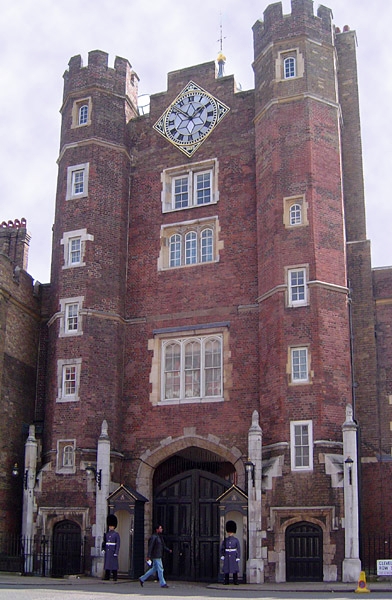The Duke of Edinburgh Award has long served as a means of encouragement for millions of young people across the world. In promoting personal development, the DofE sees thousands of students each year participate in activities that will aid in a brighter future for themselves and the communities around them. Supporters of the DofE, including Tunde Folawiyo, play an immeasurable role in the success of the DofE and its recipients, further propelling our next generation of leaders toward greatness in all aspects of life.
![Masa Sakano [CC-BY-SA-2.0 (http://creativecommons.org/licenses/by-sa/2.0)], via Wikimedia Commons Tunde Folawiyo](http://upload.wikimedia.org/wikipedia/commons/thumb/0/01/Climbing_toward_the_Lava_Tower_site%2C_Kilimanjaro%2C_-25_Aug._2009_a.jpg/256px-Climbing_toward_the_Lava_Tower_site%2C_Kilimanjaro%2C_-25_Aug._2009_a.jpg) Young people participating in the Duke of Edinburgh Award programme are encouraged to explore personal growth through volunteering, physical challenges and adventurous journeys meant to broaden their horizons. With this each participant striving for the Duke of Edinburgh Gold Award must embark on a Residential Project that will ultimately prove a great understanding of the world around them. Set for summer 2015, Kilimanjaro Trek Residential Project, a 2 week experience, will see DofE hopefuls trek Africa’s highest mountain. Ascending Kilimanjaro via the Machame Route – widely acclaimed as the best route for spectacular views – the trip’s cost is £1,925. Payable in manageable installments, the majority of the cost of the trip can be paid for through fundraising efforts. Flight accommodations, guides, permits and food and supplies are all covered under the trip’s cost. Interested participants should consult their Duke of Edinburgh Award leaders before committing to the trek for Residential credit. Contact info@thebec.co.uk or Kili2015@hotmail.co.uk for more information regarding the Kilimanjaro climb.
Young people participating in the Duke of Edinburgh Award programme are encouraged to explore personal growth through volunteering, physical challenges and adventurous journeys meant to broaden their horizons. With this each participant striving for the Duke of Edinburgh Gold Award must embark on a Residential Project that will ultimately prove a great understanding of the world around them. Set for summer 2015, Kilimanjaro Trek Residential Project, a 2 week experience, will see DofE hopefuls trek Africa’s highest mountain. Ascending Kilimanjaro via the Machame Route – widely acclaimed as the best route for spectacular views – the trip’s cost is £1,925. Payable in manageable installments, the majority of the cost of the trip can be paid for through fundraising efforts. Flight accommodations, guides, permits and food and supplies are all covered under the trip’s cost. Interested participants should consult their Duke of Edinburgh Award leaders before committing to the trek for Residential credit. Contact info@thebec.co.uk or Kili2015@hotmail.co.uk for more information regarding the Kilimanjaro climb.
The Residential requirements for the DofE Gold Award has proved an indispensable part of the full Duke of Edinburgh Award experience. A thorough understanding of other cultures and the struggles faced by others throughout the world will undoubtedly aid in participating youth’s attitudes of empathy.
Since its establishment in 1956, the Duke of Edinburgh Award has continually inspired youth throughout the world by promoting the basic skills needed for optimal personal growth and discovery. Founded by Prince Philip, the Duke of Edinburgh Award has since spread to over 140 countries around the globe. Its international chapters serve as a constant source of support for young people seeking the capabilities to effect real change within their communities. Supporters of the Award such as Tunde Folawiyo and millions of others may be pleased with the positive impact the DofE has had on youth across the world thus far. Visit a DofE chapter near you for additional information.

![By Leedsdoggod (Own work) [CC-BY-3.0 (http://creativecommons.org/licenses/by/3.0)], via Wikimedia Commons Tunde Folawiyo](http://upload.wikimedia.org/wikipedia/commons/d/d0/DofE-group.jpg) While the DofE is today one of the world’s foremost organisations for youth development, its beginnings are less recognised. Founded by a small team of esteemed professionals, the DofE was conceived as a way of motivating and inspiring boys aged 15 to 18 to strive towards a strong sense of self during the often difficult years between adolescence and adulthood.
While the DofE is today one of the world’s foremost organisations for youth development, its beginnings are less recognised. Founded by a small team of esteemed professionals, the DofE was conceived as a way of motivating and inspiring boys aged 15 to 18 to strive towards a strong sense of self during the often difficult years between adolescence and adulthood. attend on a regular basis. Approximately 83% are enrolled, but only a fraction go to school every day. Particularly in remote areas such as Bartabwa, the challenging conditions which many families find themselves in make it difficult to prioritise schooling.
attend on a regular basis. Approximately 83% are enrolled, but only a fraction go to school every day. Particularly in remote areas such as Bartabwa, the challenging conditions which many families find themselves in make it difficult to prioritise schooling. Partnered with the UK’s Dallaglio Foundation, the Duke of Edinburgh Award welcomes Bristol Rugby Club as the first to offer the prestigious DofE to its young players. At a presentation at London’s Saint James’s Palace, DofE CEO Peter Westgarth and Paula Robertson, the Head of Programmes for the for the Dallaglio Foundation, presented the DofE license to several representatives in attendance including Bright Sparks Programme Manager Craig Capel, Bristol Rugby and CEO Ben Breeze along with Bristol Rugby Community Foundation. Tunde Folawiyo and other supporters of the DofE may be pleased with the announcement and its impact on the growth of the programme.
Partnered with the UK’s Dallaglio Foundation, the Duke of Edinburgh Award welcomes Bristol Rugby Club as the first to offer the prestigious DofE to its young players. At a presentation at London’s Saint James’s Palace, DofE CEO Peter Westgarth and Paula Robertson, the Head of Programmes for the for the Dallaglio Foundation, presented the DofE license to several representatives in attendance including Bright Sparks Programme Manager Craig Capel, Bristol Rugby and CEO Ben Breeze along with Bristol Rugby Community Foundation. Tunde Folawiyo and other supporters of the DofE may be pleased with the announcement and its impact on the growth of the programme.![By Paul Wordingham [CC-BY-2.0 (http://creativecommons.org/licenses/by/2.0)], via Wikimedia Commons Tunde Folawiyo](http://upload.wikimedia.org/wikipedia/commons/thumb/0/0f/Clay_shooting_with_semi_auto_shotgun.jpg/512px-Clay_shooting_with_semi_auto_shotgun.jpg) The DofE is currently the only charity granted permission to hold a shoot at the Great Park by HRH The Duke of Edinburgh. Regardless of shooting experience, students, clients, colleagues and friends are all invited to participate in the day’s thrilling events. The day will begin with breakfast, followed by a shooting competition. A three course lunch will follow, after which an award ceremony honouring the day’s winning teams will take place. Additionally, there will be an auction to raise money for the DofE.
The DofE is currently the only charity granted permission to hold a shoot at the Great Park by HRH The Duke of Edinburgh. Regardless of shooting experience, students, clients, colleagues and friends are all invited to participate in the day’s thrilling events. The day will begin with breakfast, followed by a shooting competition. A three course lunch will follow, after which an award ceremony honouring the day’s winning teams will take place. Additionally, there will be an auction to raise money for the DofE.![By laurent Gilet, de Bambou Habitat [GFDL (http://www.gnu.org/copyleft/fdl.html) or CC-BY-SA-3.0-2.5-2.0-1.0 (http://creativecommons.org/licenses/by-sa/3.0)], via Wikimedia Commons Tunde Folawiyo](http://upload.wikimedia.org/wikipedia/commons/b/bd/Construction_maison_bambou.jpg) The business has done wonders for the local community, providing several young people with jobs; currently, Emmanuel has 25 full-time employees, as well as dozens of temporary workers, who join the team during the harvest season. The plantation grows tick trees, which are chopped up and used for the construction of housing and electrical poles. In addition to running this enterprise, Emmanuel also works as a volunteer for the DofE in Ghana, serving as the Head of Programmes and Administration.
The business has done wonders for the local community, providing several young people with jobs; currently, Emmanuel has 25 full-time employees, as well as dozens of temporary workers, who join the team during the harvest season. The plantation grows tick trees, which are chopped up and used for the construction of housing and electrical poles. In addition to running this enterprise, Emmanuel also works as a volunteer for the DofE in Ghana, serving as the Head of Programmes and Administration.
![travelgeorgia.ru [CC-BY-SA-3.0 (http://creativecommons.org/licenses/by-sa/3.0)], via Wikimedia Commons Tunde Folawiyo](http://upload.wikimedia.org/wikipedia/commons/thumb/0/0b/Lagodekhi_National_Park._Camping_%28Photo_by_A.Muhranoff%29.jpg/512px-Lagodekhi_National_Park._Camping_%28Photo_by_A.Muhranoff%29.jpg) Since its founding in 1956, the Duke of Edinburgh Award has grown exponentially, propelling it into the internationally recognised programme it is today. Recently, the Duke of Edinburgh’s Award was granted a 5 year Camping Exemption Certificate for England and Wales by Natural England, which will in turn allow D of E groups to utilise the land under less invasive restrictions. Under section 269 of the Public Health Act 1936, the following is permitted:
Since its founding in 1956, the Duke of Edinburgh Award has grown exponentially, propelling it into the internationally recognised programme it is today. Recently, the Duke of Edinburgh’s Award was granted a 5 year Camping Exemption Certificate for England and Wales by Natural England, which will in turn allow D of E groups to utilise the land under less invasive restrictions. Under section 269 of the Public Health Act 1936, the following is permitted: ted the Gold Award to 85 recipients as he praised them for their outstanding accomplishments, reiterating the importance of participating in the world-renowned programme. “It’s with great pride that I’m presenting the Duke of Edinburgh Award gold awards. What these young people have achieved is fantastic, not just for themselves but for their communities…as an actor I know how much their experiences and the skills they’ve developed matter. Without determination and passion, I wouldn’t be where I am today. I wish them every success for the future,” he said during the ceremony at St James’s Palace.
ted the Gold Award to 85 recipients as he praised them for their outstanding accomplishments, reiterating the importance of participating in the world-renowned programme. “It’s with great pride that I’m presenting the Duke of Edinburgh Award gold awards. What these young people have achieved is fantastic, not just for themselves but for their communities…as an actor I know how much their experiences and the skills they’ve developed matter. Without determination and passion, I wouldn’t be where I am today. I wish them every success for the future,” he said during the ceremony at St James’s Palace.